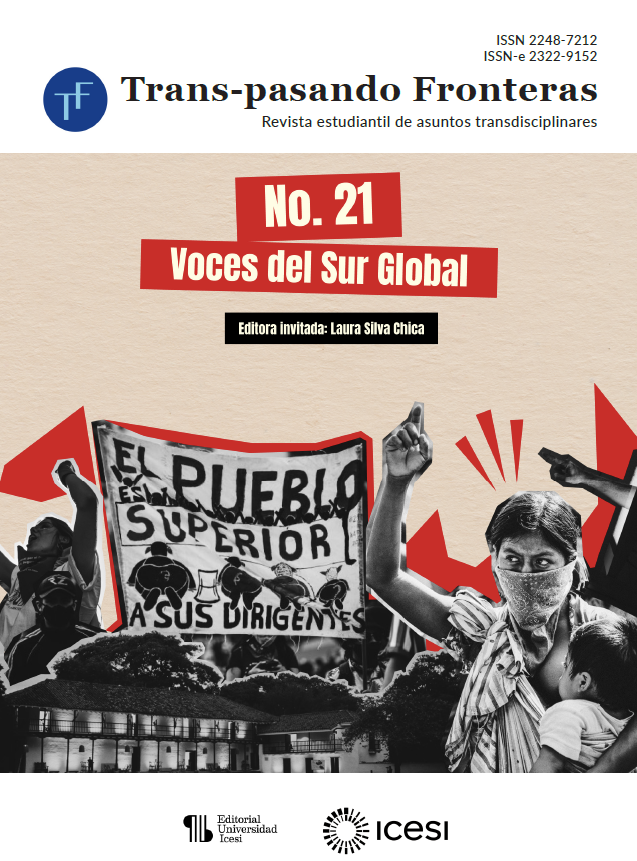Resistencias, estéticas y políticas: crónicas de un estallido
DOI:
https://doi.org/10.18046/retf.i21.6250Keywords:
Cuerpo , Resistencia, Arte, PolítiaAbstract
Resist, as an action verb, has meanings that go far beyond subverting the established order, such as disorder or alteration. Resisting implies, above all, organization, a symbolic struggle for the redefinition or rejection of the dominant models or paradigms (political, economic, social, cultural) with which a determined social group builds very concrete forms of thought, action and knowledge. The project was developed in four Colombian cities (Bogotá, Cúcuta, Vistahermosa and Popayán) recording the resistance actions of social groups with heterogeneous purposes through ethnography as a methodological commitment.
Among the conclusions we can highlight a strong sense of solidarity and collaboration between the groups, consolidated with visible leaderships and despite this often imperceptible in which collective and voluntary work is important, the emphasis on the territorial nature of the forms of resistance and the recovery of its meaning to understand the realities of the context and identity, understood in its consolidating character of recognition, history, culture and link with the territory in which aesthetics moves away from the purposes of beauty cloistered in the norm or hegemonic or elitist forms, to draw attention to a sense that has been neutralized and that are linked to active purposes.
Downloads
References
Benjamin, W. (1989). Discursos interrumpidos (Vol. 1). Madrid: Taurus.
Hine, C. (2011). Etnografía virtual. Editorial uoc.
Rancière, J. (2000). Le partage du sensible. París, La Fabrique
Rancière, J. (2008). Le spectateur émancipé. Paris, La Fabrique
Arcos Palma, R. J. (2009). La estética y su dimensión política según Jacques Rancière. Nómadas, (31), 139-155.
Downloads
Published
Issue
Section
License
Copyright (c) 2025 Rolando Chaparro Hurtado, Claudia Maritza Guzmán Ariza, Daniel Felipe Zambrano Susatama

This work is licensed under a Creative Commons Attribution-NonCommercial-NoDerivatives 4.0 International License.
Trans-pasando Fronteras provides immediate open access to its content on the principle that making research freely available to the public supports a greater global exchange of knowledge.
© Authors hold copyright and publishing rights without restrictions but in accordance with the CC license.
All the material in this publication can be reproduced as long as reference is made to title, author and institutional source.







